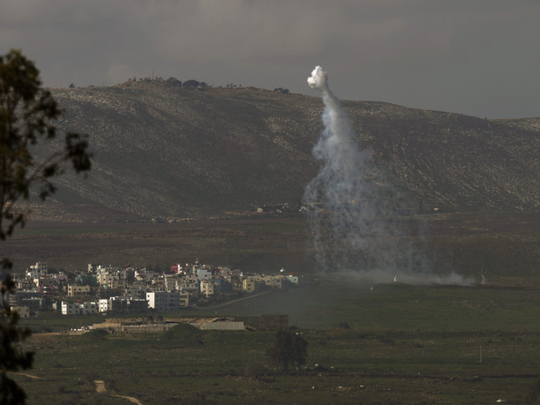
Occupied Jerusalem/Beirut: The threat of a full-blown conflict between the Israeli regime and Hezbollah increased on Wednesday after the Lebanese militant group fired a missile at an Israeli army vehicle along the frontier.
The attack killed two Israeli soldiers according to the Israeli army.
The attack, which Hezbollah said was carried out by one of its brigades in the area, was in apparent retaliation for a Jan. 18 Israeli air strike in southern Syria that killed several Hezbollah members as well as an Iranian general.
It came hours after air strikes by Israeli jets near the occupied Golan Heights overnight, which Israel’s military said was in response to rocket fire from Syria. The attack was the largest flare up between Hezbollah and Israel since the 2006 Israeli war on Lebanon which claimed over a thousand lives.
Tensions in the region, where the frontiers of the Israeli regime, Lebanon and Syria meet and militant groups opposed to Syrian President Bashar Al Assad are active, have been bubbling for months but have boiled over in the past 10 days.
There were initial reports on Lebanese media that an Israeli soldier was captured during the attack, but the Israeli army denied it, as did a Lebanese political source.
Israeli Prime Minister Benjamin Netanyahu, who has made security his top priority ahead of parliamentary elections on March 17, said Israel was “prepared to act powerfully on all fronts,” adding: “Security comes before everything else.” His office accused Iran of being behind the attack. Iran is a major funder of Hezbollah, the Shiite militant group headed by Hassan Nasrallah.
In Beirut, celebratory gunfire rang out after the attack, while residents in the southern suburbs of the city, where Hezbollah is strong, packed their bags and prepared to evacuate neighbourhoods that were heavily bombed by Israel in 2006.
With Israel weeks away from an election and Hezbollah deeply involved in support of Al Assad in Syria, observers say there would appear to be little interest in a wider conflict for either side.












